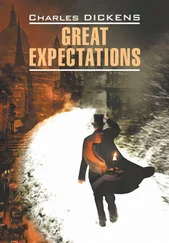Quite close to both his parents, this had been particularly so with his father. Werner Ritter and his son had often gone walking and hunting on their land and in nearby forests and spent a great deal of time together — as much, at least, as his father’s military career had allowed. His father’s death in 1916 struck the boy a massive blow — one that neither he nor his mother every entirely overcame. The financial difficulties brought on by the loss of her husband and the subsequent loss of their fortunes during the depression had been bitter blows indeed and had been an incredible strain upon a young widow trying to raise her teenage son alone.
His parents had been completely in love, although at the time Carl could never have understood the ramifications of the emotional loss his mother must’ve suffered. It was certainly something he’d given little thought to as an adult. His mother passed away of illness at a relatively young 43 years of age while he’d been fighting in the Spanish War, and whatever pain she’d endured since his father’s death had certainly ended right then and there. Ritter had borne his own feelings of loss and pain silently throughout his teenage years and early twenties, a situation that’d caused him to generally remain aloof from his peers and concentrate on his studies. By 1928 he’d completed degrees with honours in science and modern history at the University of Cologne where he’d also met Maria Planck, the young woman who would later become his wife.
The Wall Street Crash of October 1929 had then heralded the beginning of the Great Depression and a slump in national economies around the globe. Germany was hit harder than many, the collapse of the Weimar economy in no small part due to the crippling war reparations enforced upon the country by the 1919 Treaty of Versailles. With inflation and unemployment on a meteoric rise across the nation, a jobless young Carl Ritter looked elsewhere for a solution to providing for his wife and the family they’d hoped to start.
Early in 1930, Ritter signed on to a Civil Aviation Training school and was sent off with many other recruits to an airfield near Lipetsk on the banks of the Voronezh River, 440km southeast of Moscow. With military aviation banned by Versailles, a secret agreement with the Soviet Union allowed for the creation of the German Aviation School. Ostensibly set up to train civil pilots for the national airline Lufthansa , the unit was in fact intended to prepare prospective pilots for combat flight training far away from the watchful eyes of France and Great Britain.
Almost by accident, the young Carl Ritter finally found the career direction for which he’d unconsciously been searching. He proved to be a natural flyer and excelled in his training, and it took little time for the well educated and capable new pilot to display his talents and potential for leadership. Upon the official reinstatement of the Luftwaffe in 1935, Ritter was immediately offered a commission as a junior officer with a fighter squadron.
The experiences he subsequently gained with the Luftwaffe contingent in the Spanish Civil War, albeit against vastly inferior opposition, brought to the fore some of his obvious abilities. Upon his return to Germany at the end of that conflict he’d attained the rank of captain and was already one on whom those in high places were keeping a watchful eye as a potential career officer, destined to go a long way. On the rare occasions that he contemplated it in a deeper sense, Ritter could see the irony in it all. It was more than obvious that the ‘military’ was in his blood, but to find his true calling in the service of his country — the same thing that had taken his father from him — was something that had pricked at his conscience on more than one occasion.
Ritter glanced up suddenly at the sound of the kite above him, now quite close and caught by a shift in the breeze that caused it to twist and falter. It bobbed, jinked, then turned into a wide, sweeping arc downward that brought it crashing to earth among a clump of thorny bushes a few metres from where he sat. As the children ran toward him, he rose to his feet and stepped across to where it had fallen.
Carefully placing a polished boot in among the bushes to provide stability as he reached for it, Ritter extracted the kite. He examined it quickly and was impressed by the standard of construction: a few small tears here and there would require mending, but otherwise it appeared a quite sound and sturdy design.
“S’il vous plait, m’sieur…” The girl’s voice rose hesitantly from behind him. He turned to find her staring at him from the discreet distance of a few metres, seeming at the same time both nervous and intense. Far younger than his sister, the boy looked on open-mouthed from behind her, his face a mask of awe. Ritter was a tall man and although not overly broad, was solidly-built nevertheless. To a small child he must’ve seemed quite intimidating in his grey uniform and peaked cap.
“Donnez le moi, s’il vous plait…” the girl repeated the request, this time stepping forward a little. She was apprehensive, but not so frightened as her brother. Ritter estimated her age to be somewhere around twelve or thirteen. With long, flowing locks of auburn hair, she was tall for her age and slim of build, and the light dress she wore also showed the faint curves that suggested she was on the cusp of beginning the metamorphosis of child to young woman.
“I think that it will require some mending before it flies again, my dear,” Ritter replied in fluent French, a language he’d learned at a very early age courtesy of the French side of his mother’s family. “These holes may tear completely in the wind…”
“I can fix it…!” She spoke proudly as she snatched the kite from Ritter’s open hands.
“I don’t doubt that for a moment,” he replied with a smile, impressed by her courage and confidence. “That’s a very good kite. Did you make it?”
“Are you a German?” The girl countered in the way of all children: changing the subject without warning. “My mother says all Germans are Nazis and they kill people!” As she spoke, the smile on Ritter’s face tightened and lost its humour. His expression turned to vague sadness and he dropped to his haunches, lowering himself to the children’s level.
“What’s your name?”
“Michelle…”
“And yours …?” He turned to the boy, who immediately clutched at his sister’s arm and pushed himself a little further behind her. He peered around beside left shoulder.
“…Antoine…” he answered softly after a long pause.
Well, Michelle and Antoine…” Ritter began with a kindly voice “…let me tell you both something important that I hope you’ll try to remember…” He placed his hands on his thighs for support. “Yes, I am a German, but I’m not a Nazi. Most Germans — even the soldiers — are not Nazis…”
“You’re a soldier : do you kill people?” At no more than five years old, the boy’s awe-struck question stung him more than he’d have cared to admit. Ritter had forty kills to his credit, each recorded as a ‘kill bar’ on the rudders of his J-110, and some — more than a few of them — had been Frenchmen — these children’s countrymen. Some of the pilots of those ‘kills’ had managed to bail out…many had not. Young children sometimes had the innate ability to force people to come to face who they truly were in ways that weren’t always pleasant.
“I’m a pilot, not a soldier…” he answered with a wry grin, dodging the question altogether. “…I fly aeroplanes.” He assumed the girl must have been old enough to know what a fighter pilot was, but if Michelle saw the lie hidden in Ritter’s answer, she showed nothing of it.
Читать дальше












